Reflections on Marist Spirituality (6) – Instruments of Divine Mercy
These reflections were first published in 1212 in Tutu - Another Way, written by Adele M.E.Jones with Michael McVerry sm. They are reprinted with permission
Fr Colin said: ’Marists will be completely empty of themselves so that they may be filled with graces and become in the hands of God worthy instruments of divine mercy towards their neighbour.’
The theme of the infinite mercy of God is at the very heart of the Bible. Every page of the Old Testament speaks of the God who even when disappointed at the sins of the people could not forget them. Yahweh said to Moses: ’l, the Lord am a God of tenderness and grace, slow to anger and abounding in mercy and faithfulness. I keep my promise for thousands of generations showing kindness and forgiving iniquity, transgression and sin.’ (Exodus 34:6)
The image of his Father that Jesus paints for us is more vivid. God's mercy is wide open to all, especially to those who seemed to be excluded through the overbearing pettiness of the Pharisees. His preference goes not to the self-righteous but to repentant sinners, as seen in the parable of the Prodigal Son and Jesus’ encounter with the woman caught in the act of adultery.
Jesus himself, the perfect image of His Father, is the friend of sinners, Samaritans, lepers and whoever is, for one reason or another, excluded or rejected. His heart is moved by the widow who lost her only son and the tears of Martha and Mary on the death of Lazarus. He does not scold Judas who betrayed him in the garden and he prays for his torturers on the cross, ‘Father, forgive them, they know not what they are doing.’
The special mercy of God, the special intervention of Mary, the Mother of Mercy, was needed, in the eyes of the first Marists, to heal a broken world. They were convinced that the Society of Mary was ‘Mary's undertaking, Mary's work’ - Mary calling men and women into her Society to work on her behalf to do this work of being instruments of God's mercy.
The earliest missionary experience of the first Marists was to an isolated area, long neglected by the Church, where people had not had the opportunity to receive the Sacraments for many years. All his life Fr Colin treasured the memories of those days and the joy of having touched so many hearts. The knowledge that this succeeded because the first Marists approached people with respect and gentleness gave a strong direction to Fr Colin's vision of the mission of the Society: ‘A Marist makes all his/her love shine forth and shows deep compassion. This does an enormous amount of good and opens up people's hearts. I think more is to be gained by arousing people's confidence than by thundering and frightening people. There are souls perhaps who respond to a fright but there are more, l think, who respond to kindness, gentleness and trust.’
Let us learn to understand the human heart
Fr Colin goes on to say: ‘Let us learn to understand the human heart. Let us put ourselves in the place of those we are speaking to. Would outbursts of anger win their hearts? Rather, let us find excuses for them, congratulate them on their good qualities (there are always some) but no reproaches. I do not know of a single instance where anger has done any good, not a single one.....'Fr Colin opened this first mission with the words: ‘We have come here among you, as the instruments of the divine mercies.’
l often think of Fr McVerry and the Tutu team going to the mountains of Vanua Levu, like Fr Colin and his companions in the Bugey mountains, bringing Mass and the Sacraments to people who have been long neglected. Together with all the other works they do they are above all the instruments of God's mercy to the people they minister to.
In Fr Colin's time it was normal for the priest to be severe in the confessional. Being sorry for your sins and hoping to do your best by God's grace was not enough. People were sent away without absolution if the priest was not sure they were truly sorry for their sins. However, the Marists approached it differently. They bore the name of Mary; they were to be loving and caring. They were to persuade sinners to repentance rather than to try to force them with great threats. Fr Colin said: ‘lf I can't save them with the law, l’ll save them without the law.’
They were to accept what degree of contrition their penitents could genuinely muster and leave the rest to God. They found, in practice, that people would afterwards go much further in conversion than had seemed likely at first. When preaching, the Marists were to persuade the people, to encourage them, rather than to roar at them. The early Marists were encouraged to speak simply, quietly and naturally and not in the arrogant, self-important style that was common among priests at that time.
In his many talks on the ministry of the confessional, Fr Colin urged the most merciful approach imaginable at the time and this was to be a characteristic of the Society. Fr Colin had seen clearly with what great sensitivity one must approach those struggling to find a way to God. He himself had learned what it means, and what it costs, to get into the skin of another, to get below the surface of another person's life, and to see the world through the eyes of another.
He had also learned that to bring back the lost sheep, a good shepherd must be prepared to go beyond the boundaries of human comfort, self-interest, in order to find the lost where they are.
Writing about this most important characteristic of a Marist Fr Coste says: ‘Mercy does not mean passing the eraser over things or letting things go, or indulgence or laxity; it means HOPE. A true attitude of mercy towards sinners is one of call. Jesus said: ‘l have come to call, not the self—righteous, but sinners.’ We can adopt any of three attitudes towards the sinner: condemnation, pardon or call. Fr Colin adopted the approach of call. Only call conveys the feeling of being wanted and useful; only call gives life a meaning and restores the person to the fullness of his dignity. Only call goes to the limits of mercy. That is Marist mercy: the ability to hope in others and bring out the best in them.’
It is a great privilege for me to be invited to be a member of the Board of this Marist Training Centre at Tutu. I lived in the Tutu novitiate community during the years when this Training Centre was experiencing many trials. I am thrilled to be back here at this time to see how the Centre has grown through those trials and tribulations and become the remarkable place it is today. The Tutu Experiment is known and acclaimed far beyond the shores of Fiji. However, for me, this is unmistakably Mary's place and l find here a Marian Church: a couple of Marist priests and religious hidden among a large number of Marist Laity living and proclaiming the Gospel, creating a place and a space where people can recognise their gifts and then reach far beyond themselves as instruments of God’s love and mercy.
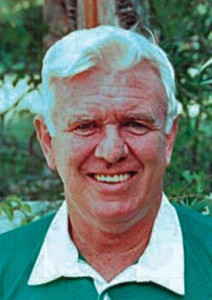
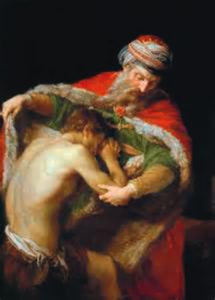
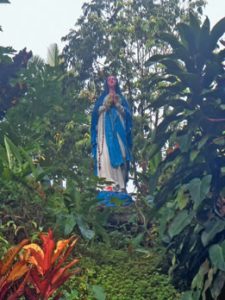
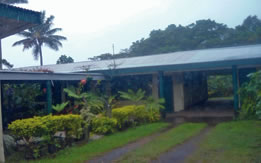
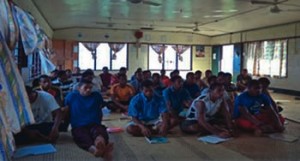
 Entries(RSS)
Entries(RSS)